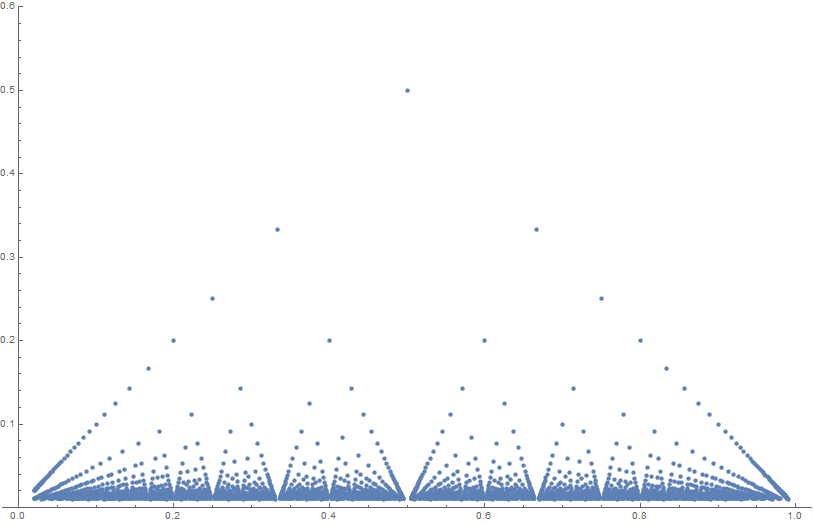Difference between revisions of "Thomae function"
From specialfunctionswiki
(→Properties) |
|||
| Line 23: | Line 23: | ||
<div class="toccolours mw-collapsible mw-collapsed" style="width:800px"> | <div class="toccolours mw-collapsible mw-collapsed" style="width:800px"> | ||
<strong>Theorem:</strong> The Thomae function has a (strict) [[local maximum]] at each [[rational number]]. | <strong>Theorem:</strong> The Thomae function has a (strict) [[local maximum]] at each [[rational number]]. | ||
| + | <div class="mw-collapsible-content"> | ||
| + | <strong>Proof:</strong> █ | ||
| + | </div> | ||
| + | </div> | ||
| + | |||
| + | <div class="toccolours mw-collapsible mw-collapsed" style="width:800px"> | ||
| + | <strong>Theorem:</strong> The [[Thomae function]] $f(x)$ is not [[Riemann integrable]] but it is [[Lebesgue integrable]] and | ||
| + | $$\displaystyle\int_0^1 f(x) dx = 0.$$ | ||
<div class="mw-collapsible-content"> | <div class="mw-collapsible-content"> | ||
<strong>Proof:</strong> █ | <strong>Proof:</strong> █ | ||
</div> | </div> | ||
</div> | </div> | ||
Revision as of 20:37, 11 April 2015
Thomae's function is given by the formula $$f(x) =\begin{cases} 1 & \text{if } x= 0 \\ \tfrac1{q} & \text{if } x = \tfrac{p}{q}\\ 0 & \text{if } x \in \mathbb{R}-\mathbb{Q}. \end{cases}$$
Properties
Theorem: The Thomae function is continuous at all irrational numbers and discontinuous at all rational numbers.
Proof: █
Theorem: The Thomae function has a (strict) local maximum at each rational number.
Proof: █
Theorem: The Thomae function $f(x)$ is not Riemann integrable but it is Lebesgue integrable and $$\displaystyle\int_0^1 f(x) dx = 0.$$
Proof: █
